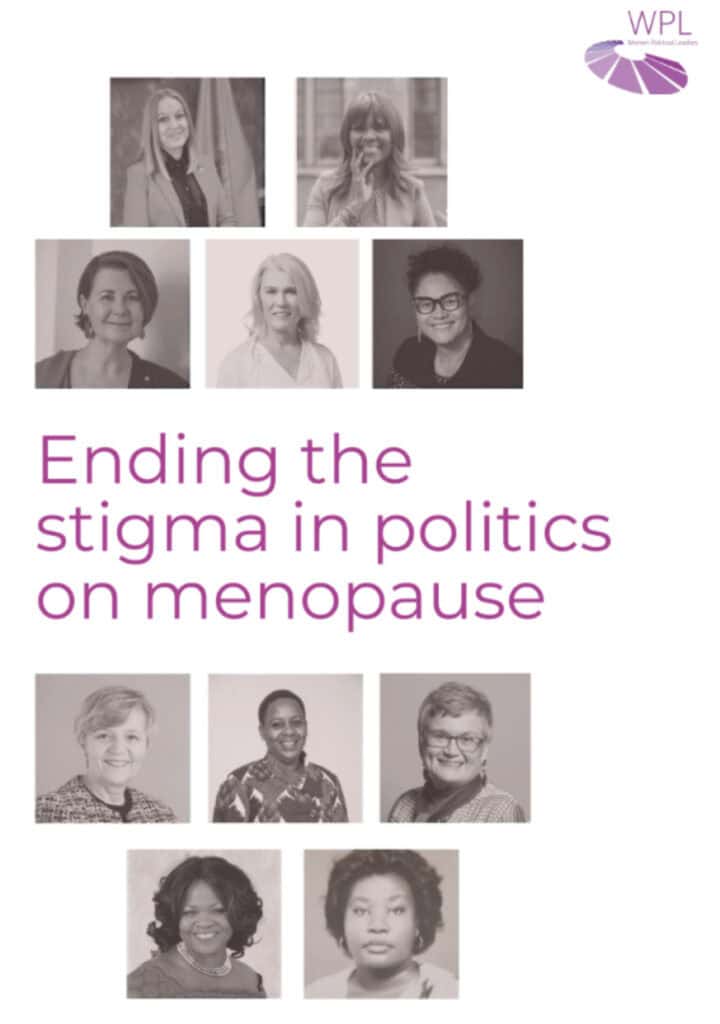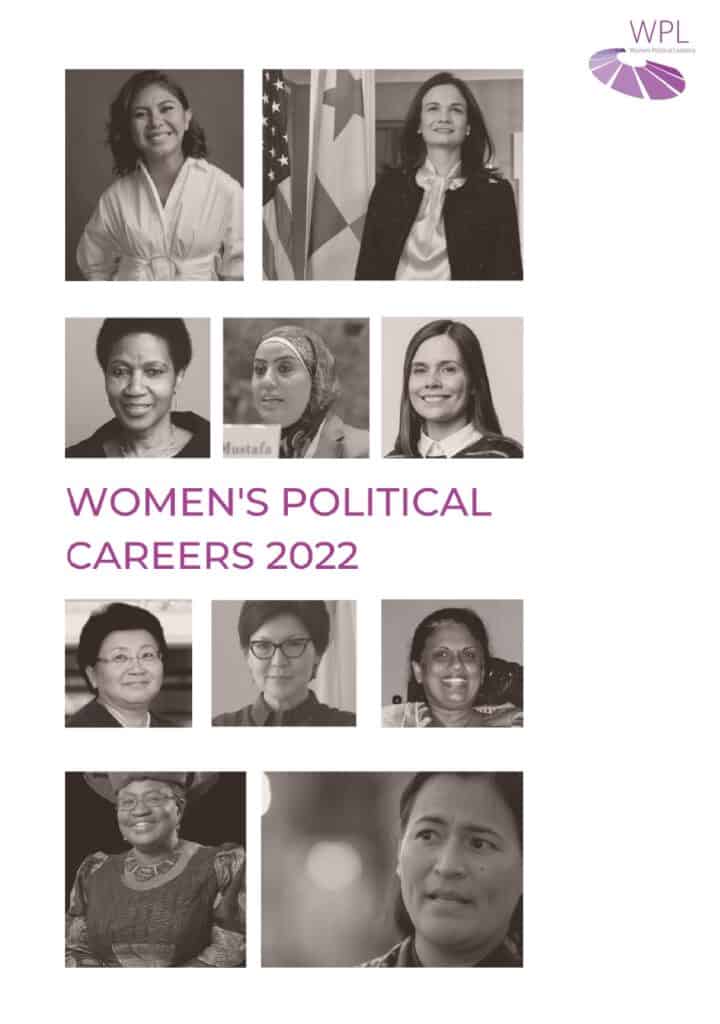WPL Studies
Data and evidence are crucial to support advocacy for more women in political leadership. WPL Studies build this knowledge. WPL partners with outstanding academic institutions, international organisations and private sector supporters to produce fact-based reports.


Leadership Dialogue on Protecting Voices Digital Safety for Women in Politics Post Event Policy Report
In April 2025, Women Political Leaders (WPL), in partnership with MEP Paulo do Nascimento Cabral, and supported by Airbnb and HateAid, convened a high-level Leadership Dialogue at the European Parliament to tackle the growing threat of digital violence against women in politics.
Bringing together 37 leaders from across the EU and beyond – including parliamentarians, digital rights experts, tech representatives and civil society – the roundtable addressed the urgent need for action on online abuse, deepfake threats and algorithmic discrimination. Discussions focused on improving enforcement of existing EU legislation, holding social media platforms accountable and ensuring institutional protection for women in public life.
Key recommendations include:
- Enforcing existing EU legislation and improving social media platform accountability
- Establishing an EU-Wide rapid response mechanism and mandating institutional reporting and gender training
- Strengthen cross-border coordination and recognising digital violence as a threat to democracy
- Ensuring AI Regulation protects women and boosting digital literacy and public awareness
The dialogue marked a critical step forward in uniting cross-sector stakeholders to safeguard democracy by protecting the digital space for women political leaders.
Read more here

Representation Matters Report
This initial report by WPL, based on findings of the University of Korea and in partnership with King’s College and the Oliver Wyman Forum shows that a country’s overall progress and performance improves
when it has significant representation of women in political leadership because they often have different viewpoints and priorities than men. Increased representation of women typically results in more laws that ensure equality and greater participation of women in the workforce. Releasing the report on WPL’s 10th anniversary reinforces WPL’s mission to increase the number and influence of women in political leadership positions. Read more here.

Ending the stigma in politics on menopause
In 2021, women who were fifty years old and above constituted twenty-six per cent of the total female population worldwide. This marked a four per cent increase compared to the preceding decade. Given that most
women experience menopause between ages forty-five and fifty-five and have longer lifespans, the need to offer effective healthcare and support to women in their personal and professional lives becomes highly evident.
The changing demographics, along with a compelling moral and social duty, highlight the critical need for heightened awareness of the stigma around menopause. Additionally, it emphasises the importance of formulating effective policies governing the access and provision of suitable resources for women across the globe.
With this in mind, Women Political Leaders (WPL) offers this toolkit to help global policymakers develop ways to recognise and practically address problems that arise from the stigma and taboo around menopause. Making menopause manageable by minimising stigma and improving support will benefit all of our constituents and ensure we create a culture where women are supported at every stage of their lives.

Women Political Leaders Policy Toolkit: Women’s healthcare throughout their lives
This toolkit aims to identify some of the actions it will take to bring equality to women’s health and explore what can be done
to ensure women are able to live long and healthy lives. Women Political Leaders (WPL) is enormously grateful to the experts who took part in interviews that informed the development of this toolkit. A better understanding of women’s unmet health needs can help identify actions required to address them. As the saying goes: “communities are only as strong as the health of their women”.

Women’s Political Careers
It is over a hundred years since the first women were elected to national parliaments, yet women worldwide still hold only 26.4 percent of parliamentary seats (IPU 2022). While progress has been made
in recent years there is still much to be done to ensure women’s voices are heard as much as men when it comes to making the decisions that shape all of our lives. This report follows on from the 2015 report The Female Political Career and aims to understand the experiences and intentions of women in politics in today; it is based on survey responses from women politicians in 66 countries seeking to better understand the motivations and challenges shared by women who decide to pursue a political career.

Boosting women’s economic empowerment: An action list for legislators report
In 2021, Google.org funded a report by Women Political Leaders entitled “Boosting women’s economic empowerment: An action list for legislators” which seeks to provide policymakers with a concrete set of indicators that will assist those seeking to legislate towards economic equality. The data, derived from The World Bank’s annual report on ‘Women, Business and the Law‘, shows that “nearly 2.4 billion women globally don’t have the same economic rights as men”; WPL has worked to provide a toolkit for legislators to remove these legal barriers to women.
Download the report by clicking here
Those seeking to legislate towards economic equality. The data, derived from The World Bank’s annual report on ‘Women, Business and the Law‘, shows that “nearly 2.4 billion women globally don’t have the same economic rights as men”; WPL has worked to provide a toolkit for legislators to remove these legal barriers to women.
